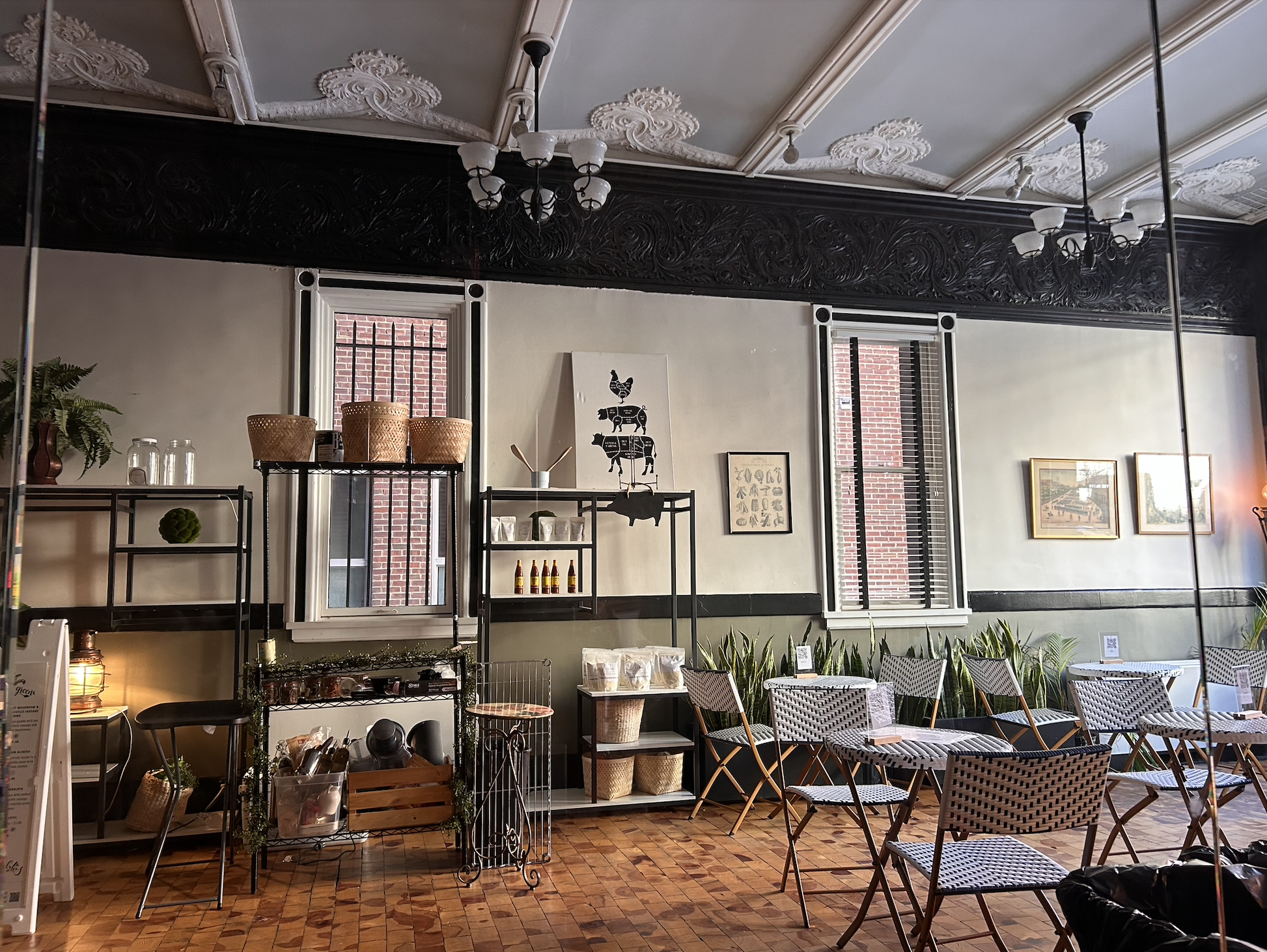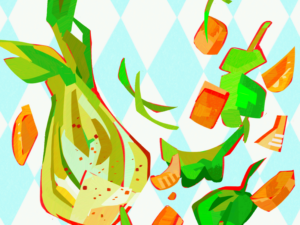In the interior of D.C.’s first all-vegan Cajun restaurant, Glenn Miller’s “In the Mood” hums through the speakers. Six shelves of still-growing microgreens are placed in front of the window, labeled “Rainbow Radish,” “Broccolini,” and “Super Spicy Greens.”
A full-length mirror, complete with a French Quarter-style gilded casing, frames half a dozen small wicker tables. Hanging on the wall is a print of various farm animals divided by cut of meat—but instead of each section being labeled “brisket” or “flank,” they read “pet here” and “hug.” The image seamlessly bridges lovers of authentic Southern cuisine with a younger, environmentally-conscious clientele.
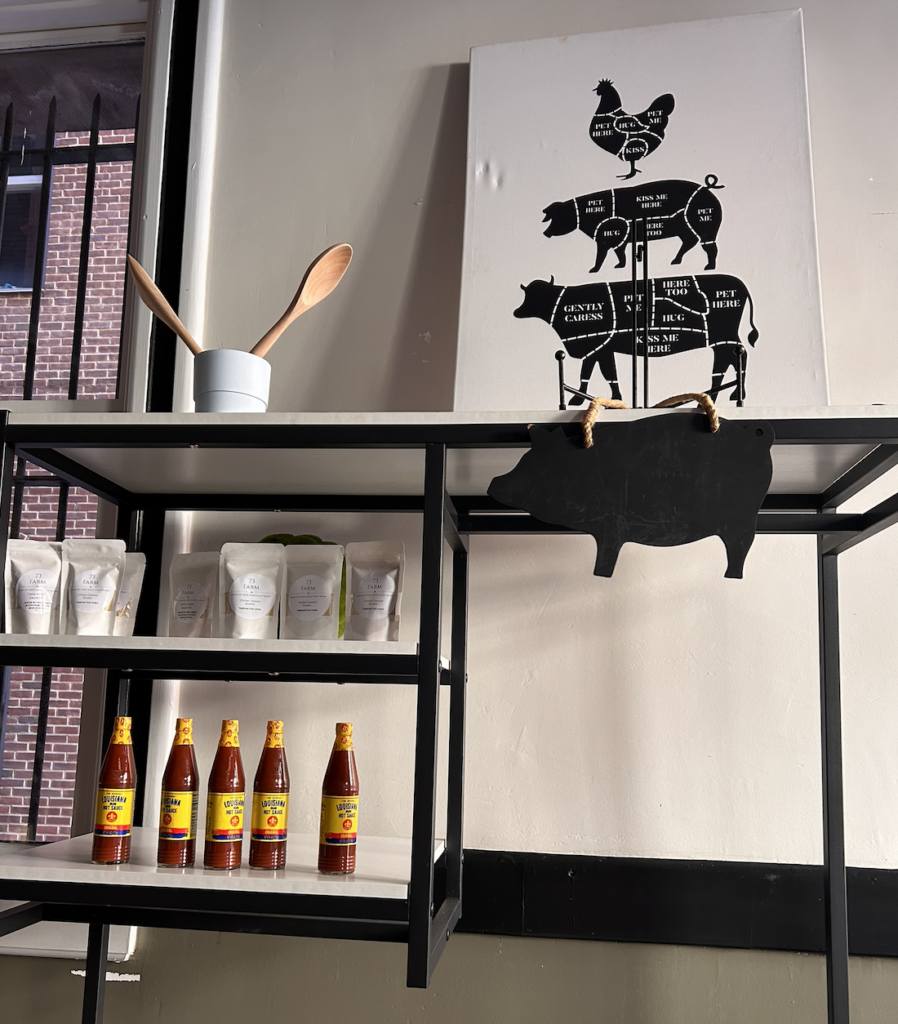 Courtesy of Rhea Banerjee, Cole Kindiger, and Francesca Theofilou
Courtesy of Rhea Banerjee, Cole Kindiger, and Francesca Theofilou
Wedged between the National Portrait Gallery and Ford’s Theatre, 73 Farm opened in late January as part restaurant, part market. The pop-up offers both an all-vegan menu and a variety of ingredients to be used in vegan kitchens, including things like spice mixes and artificially flavored seitan.
The restaurant is the brainchild of Chel’se Williams, a Texas-raised chef with experience creating her own plant-based meat alternatives. Named after the first house she had with her husband, 73 Farm is the first step in Williams’s plan to bring authentic, ethical cuisine to the District.
“Just a couple days ago, this older woman came up,” Williams said. “She said, ‘I grew up in New Orleans and I went vegan, and I haven’t had a beignet in 20 years.’ She started telling me about how she used to make her jambalaya, and she used to make pralines with her mom—just like I did.”
“There’s people who went to New Orleans and weren’t able to find vegan options. Those are the people that make me think, ‘Okay, this is who this is for.’”
Williams, a long-time vegan, understands that the demands of a fully vegan lifestyle can dissuade some would-be vegans from making the transition. She hopes that, by giving customers both ingredients and guidance, she’ll be able to make plant-based cooking more accessible for everybody.
“A lot of people find vegan cooking very intimidating,” she said. “So the products that we have—like our seitan mix or our cacio e pepe mix—is to make sure that people can make things vegan at home. To take a lot of the work out of it.”
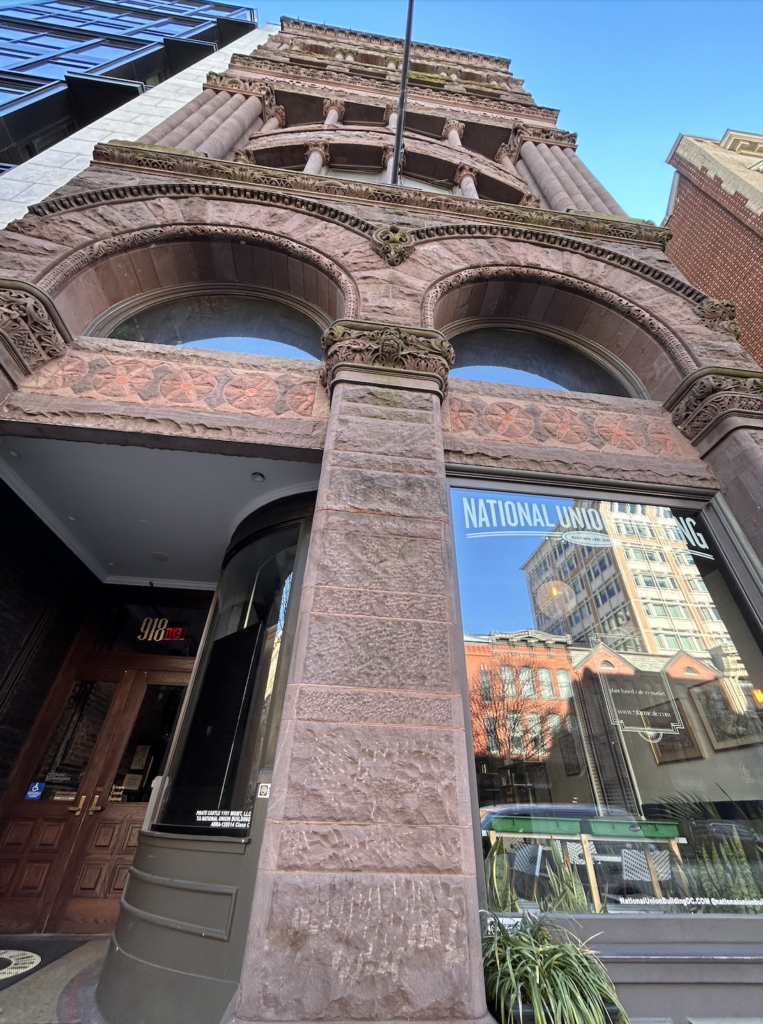 Courtesy of Rhea Banerjee, Cole Kindiger, and Francesca Theofilou
Courtesy of Rhea Banerjee, Cole Kindiger, and Francesca Theofilou
When confronted with the lack of vegan options that were both sustainable and accessible to her, Williams, originally a chemical engineer, began experimenting and making her own. She gradually perfected her own array of meat-alternatives—barbecue seitan, oyster mushrooms, soy based sausages, and more—and went from making them for herself to selling them at a local market. Soon enough, Williams had established her own company producing these meat alternatives and selling them to nearby restaurants.
“In my head, I break up [everything] into formulas,” Williams explains, detailing just how much thought and trial-and-error went into perfecting these meat alternatives. Whether it’s adding nutritional yeast for B vitamins, or balancing combinations of plant-based proteins to create a complete and nutritional substitute, Chel’se’s dedication to quality is apparent in every component of her menu items. Nutrition isn’t where Chel’se stopped, however; she’s also cracked the code for authentic seafood-substitutes that use flavors and scents associated with seafood such as kelp powder, seaweed, lemon, and seasalt. You may think you’re enjoying a delicious piece of shrimp, but really, “it’s just a fried mushroom.”
Williams’s inspiration for the place rests in her roots: “I wanted to do a New Orleans menu, because while I grew up in Texas, my whole entire family is from Louisiana. So, this is the other version of foods that I grew up with—gumbos and jambalayas and red beans and rice, and po boys. That’s where 73 Farm came from. I wanted to bring something that I grew up with, and also give something back to the people.”
With touches of warmth in the plants littering the space, 73 Farm definitely garners a homey aura. The menu holds a plethora of Cajun recipes, including Williams’s personal favorite, the gumbo. “It’s traditionally slow-cooked. You want to get all the maximum flavor that you can out of the ingredients,” she said, while describing the comfort the meal provided her. Further reflecting on the gumbo’s personal roots, Williams elaborated, “It’s traditional; every Christmas, we go around everyone’s houses and try everyone’s gumbo.”
Listening to Williams’s story, we were curious about the attention 73 Farm had been receiving, wondering if there was a good reception from the D.C. crowd. However, it was difficult to truly measure attention as, at the time of the interview, the pop-up had been open for a week—and only for lunch hours, at that. The city does not boast many vegan-Cajun restaurants, making 73 Farm a novelty for some, and a source of nostalgia for others. As D.C. is home to quite a diverse range of populations, there is a lot of potential for this type of restaurant to reach those minorities, specifically those that are vegan, as well as those who are missing the food of the south.
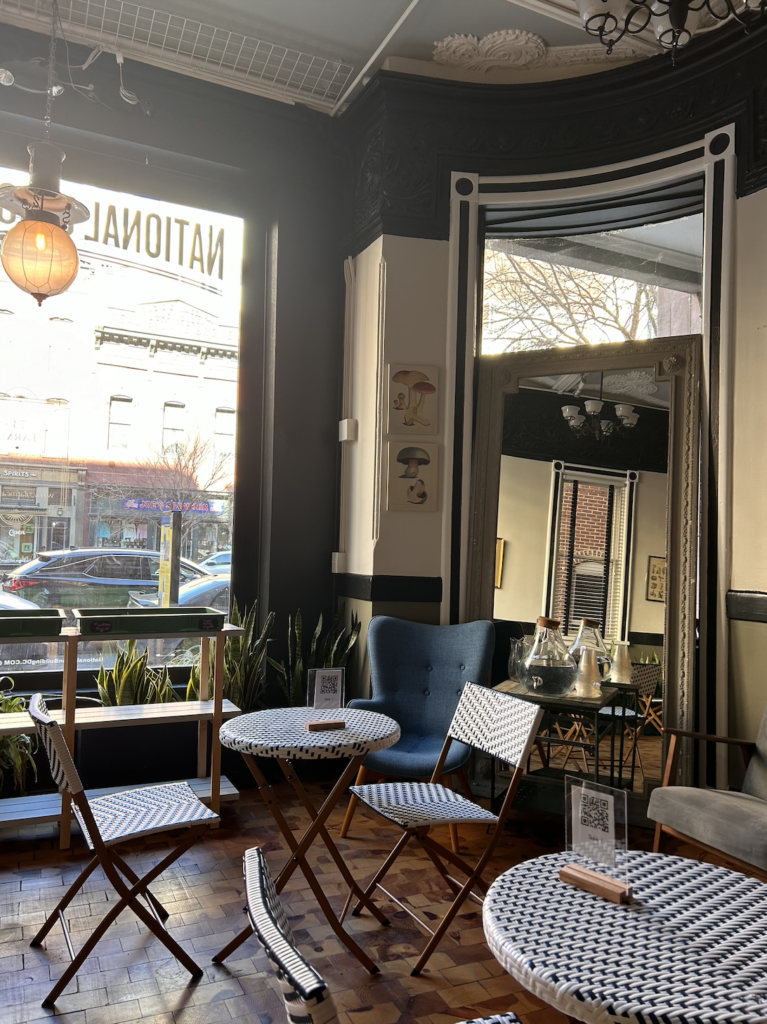 Courtesy of Rhea Banerjee, Cole Kindiger, and Francesca Theofilou
Courtesy of Rhea Banerjee, Cole Kindiger, and Francesca Theofilou
In addition to serving D.C.’s diverse demographic, the new pop-up is also dedicated to sourcing their ingredients locally. Yet, there have been some obstacles with doing so: “In the culinary world, you have to have credibility. So, we’re telling people we’re starting a vegan restaurant and we want to buy [their] product.” As a new restaurant, 73 Farm perhaps has to put more effort into achieving their goals of locally-sourced food. They also partner with local animal sanctuaries, such as Rosie’s Farm Sanctuary, often making regular donations to support them.
Given the pop-up’s unique positioning as both a restaurant and market, utilizing local vendors in their market stands would be a great way to further incorporate the space within the D.C. community. Williams spoke to her hopes of “set[ting] up a little stand where people can buy fresh vegetables.” This would allow the restaurant to also double as a grocery store for folks to bring the cajun food back to their homes—part of Williams’s mission to make vegan Cajun fare in the District both accessible and affordable.
Williams remembers when she first realized her plant-based dishes could be enjoyed by everybody. “I would make my vegan ribs at home, and my family would try it—and they loved it,” she said. “ It was like, ‘Wow, that validation from the biggest meat eaters ever.’”
73 Farm definitely has an interesting disposition, catering specifically to two minority groups of the city, yet being open to all. The comforting aesthetic paired with the pure warmth radiating from their food selection make the restaurant a refreshing new option in D.C. “We tell people, ‘Flexitarians, vegans, meat eaters are all welcome.’ We just want to make good food for people.”


